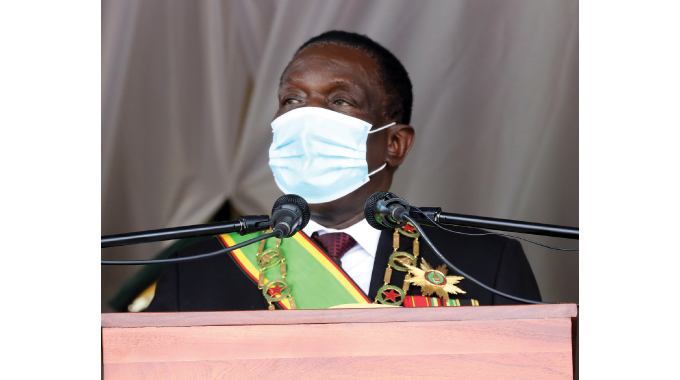Chinese investments give Zimbabwe’s mining sector new face of growth

Tafara Mugwara
Zimbabwe is witnessing an influx of Chinese investments in the mining sector as the resource-rich southern African country seeks to increase mineral production and maximise beneficiation in order to get better returns from its vast mineral wealth.
In 2019, Zimbabwe set out on an ambitious drive to more than quadruple mining sector revenue by hauling minerals worth US$12 billion by 2023.
In 2021, the country earned about US$5,7 billion in mineral exports, a huge leap from US$3,2 billion recorded the previous year.
Chinese investments in the mining sector are expected to play a significant role in the realisation of Zimbabwe’s mining sector recovery and growth plan.
In the month of June alone, President Emmerson Mnangagwa commissioned two major Chinese mining projects in gold and lithium mining.

President Emmerson Mnangagwa
On June 10, President Mnangagwa commissioned a US$35 million gold crush and recovery plant at Radnor mine in Makaha, Mudzi district in the Mashonaland East Province.
Radnor Mining firm, is a subsidiary of ZimCN, a partnership between local and Chinese investors.
“Such investments, enhanced exploration activities, the resuscitation of closed mines, opening of new mines, expansion of existing mines, and adoption of new and more efficient mining techniques are contributing to the realisation of our mining sector target of a US$12 billion mining sector by 2023,” said President Mnangagwa.
Gold is Zimbabwe’s largest foreign currency earner, and the precious metal is expected to contribute US$4 billion towards the envisaged mining sector growth ambition.
A week following the commissioning of the gold plant, President Mnangagwa officiated at the launch of Sinomine’s US$200 million project to build a lithium mining and processing plant in Bikita, Masvingo Province.
“My Government cherishes the willingness of companies from the People’s Republic of China to invest in Zimbabwe.
This has led to a number of top tier Chinese conglomerates investing in various sectors of our economy, with win-win benefits for all,” President Mnangagwa said.
In addition, he said the investment solidifies Zimbabwe’s position in the global electric car industry.
“It is my expectation that the development of the lithium mining sector in Zimbabwe will lead to growth of value chain linkages in the manufacturing industry,” he said.
He added that given Zimbabwe’s vast lithium deposits, the country is positioned to become a centre of research, development and manufacturing of green energy and lithium-based solutions in the region.
The Bikita lithium deal followed China’s Zhejiang Huayou Cobalt’s acquisition of the Arcadia lithium mine near Harare for US$422 million in December last year.

China’s Zhejiang Huayou
“We intend to develop the project rapidly over the next year and invest around US$300 million to develop the mine and construct a processing plant with a capacity to treat around 4.5 million tonnes of ore and produce 400,000 tonnes of lithium concentrate per annum,” the company said.
Zimbabwe possesses Africa’s largest lithium reserves.
The country has set an ambitious target of earning US$ 500 million from lithium exports starting from next year from US$2 million in 2017.
Apart from gold and diamond mining, investors from China have also shown interest in the mining of lithium, chrome and nickel among other minerals.
China’s Tsingshan Holdings Group, the world’s top producer of nickel and stainless steel, is constructing an iron ore mine and a carbon steel plant in Mvuma, about 190 km from Harare.
The US$1 billion project, which upon completion will become one of the largest steel plants in the region, is expected to reinvigorate Zimbabwe as a major steel producer.
To support the Government’s push for local beneficiation, AfroChine, a subsidiary of Tsingshan, and one of the largest ferrochrome producers in Zimbabwe, has made notable investments in the construction of chrome smelters.
Last year Zimbabwe’s value addition drive also received a major boost after Dinson Colliery Company, another subsidiary of Tsingshan, commenced coke production at its plant in Hwange, Matebeleland North Province.
Notable Chinese investments have also been recorded in black granite mining and processing, coal mining, processing and power generation, nickel, among others.
– Xinhua.











Comments